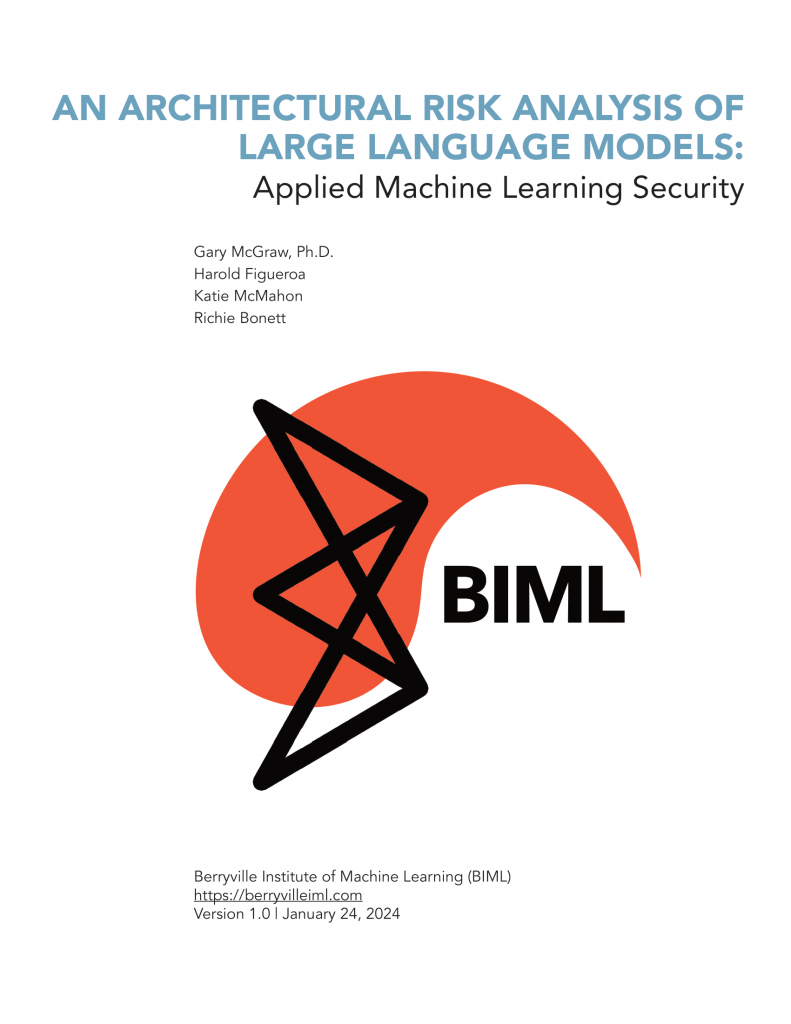All Your LLM Are Belong to Us
We didn’t want to rain on the Davos parade, so we waited until this week to release our latest piece of work. Our paper “An Architectural Risk Analysis of Large Language Models: Applied Machine Learning Security,” spotlights what we view as major concerns with foundation model LLMs as well as their adaptations and applications.

We are fans of ML and “AI” (which the whole world tilted towards in 2023, fawning over the latest models with both awe and apprehension). We’re calling out the inherent risks. Not hand wavy stuff—we’ve spent the past year reading science publications, dissecting the research ideas, understanding the math, testing models, parsing through the noise, and ultimately analyzing LLMs through the lens of security design and architecture. We took the tool we invented for ML security risk analysis in 2020 (see our earlier paper, “Architectural Risk Analysis of Machine Learning Systems: Toward More Secure Machine Learning”) and applied it to LLMs specifically.
We found 81 risks overall, distilled a Top Ten (Risks) list, and shined a spotlight on 23 critical risks inherent in the black box LLM foundation models.
And now 2024 is off and running. It will be the year of “AI Governance” in name and (optimistic) intent. In practice, however, it’s on pace to be a shitshow for democracy as regulators run like hell just to get to the starting line.
The Slovak parliamentary election deepfake debacle, is the tip of the iceberg. OpenAI tried to get ahead of concerns that their technology may be used to influence the US Presidential Election in nefarious ways by posting its plans to deter misinformation. The irony is that OpenAI trained its models on a corpus so large that it holds vast globs of crazy rhetoric, conspiracy theories, fake news, and other pollution which its stochastic models will draw upon and (predictably) spit out…that will, in turn, add to the ever amassing pile of garbage-strewn data in the world, which future LLM foundation models will ingest, … See the problem here? That’s recursive pollution.
It’s the Data, stupid. (We sure wish it were that simple, anyway.)
See our official Press Release here.
1 Comments
Leave a Reply

Hello
I am very interested in your study and work. I look forward to read your work.
Regards,
Reza